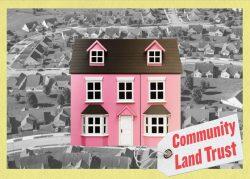Some City Council members have their own version of Mayor Eric Adams’ “City of Yes.”
A series of bills seeks to elevate nonprofits and community land trusts over for-profit affordable housing developers.
One measure, sponsored by Manhattan member Carlina Rivera, would grant nonprofits and community land trusts the first opportunity to buy apartment buildings of three or more units, and give them the chance to match higher bids.
Another bill would give those groups dibs on city-owned land made available to develop affordable housing. It would bar the city from awarding sites to for-profit developers unless no nonprofits or community land trusts responded to a request for proposals.
“It’s this simple: When public land is being redeveloped, it should be developed for the public good,” said Brooklyn Council member Lincoln Restler, who is sponsoring the latter measure.
But consensus on what is best for the public has always been elusive in New York.
The New York State Association of Affordable Housing, a trade group for affordable housing developers, said that the bill would further slow affordable housing construction in the city — a sentiment shared by the Adams administration. The city produced 45 percent fewer affordable units in 2022 than in 2021, according to the Mayor’s Management Report.
“Limiting the pool of companies that can apply for RFPs to build on city-owned land will further
exacerbate this trend,” the group wrote in prepared testimony submitted to the City Council. “The city’s housing crisis means that we need all hands on deck. Excluding companies due to their tax status equals less production.”
The New York Real Estate Chamber, a group focused on ramping up development by minority-owned businesses, argues that the measure would “result in deeper disenfranchisement of Black-and brown-owned businesses,” by closing them off from affordable housing projects.
The measures, along with another that would create a city land bank, have been introduced in previous years but failed to go far. The Council’s Committee on Housing and Buildings held a hearing Thursday on reintroduced versions of the bills.
It also considered a measure that would require the Department of Housing Preservation and Development to study the feasibility of creating a social housing agency. The term is often used to describe various housing models that prioritize resident-control of a property, long-term affordability and relief or separation from market pressures.
The city has employed various social housing models, most obviously public housing but also community land trusts and limited-equity co-ops.
The city is not alone in pursuing bills that prioritize nonprofits as developers and landlords. State lawmakers have pitched the Tenant Opportunity to Purchase Act, a measure that would give tenants the first shot to buy their building if it hit the market. On Thursday, the committee also discussed a resolution in support of TOPA.
Bronx Council member and housing committee chair Pierina Sanchez said she supports a “City of Yes, And,” which supplements making it easier to build housing with a focus on low-income New Yorkers and reversing systemic racism.
“Without stabilizing people in our homes, we are not moving the needle,” she said.
The administration’s response to the bills presented Thursday was largely, “no, but.” Kim Darga, a deputy commissioner at HPD, testified that the agency already prioritizes participation by minority- and women-owned businesses and nonprofits.
She said that while the department is committed to finding innovative tools to address the city’s housing crisis, and is open to expanding its social housing programs, the proposed measures would slow residential sales and affordable housing development.
Restler’s bill would “add time, complexity and significant cost to the existing process,” Darga said. Creating another agency to promote social housing in the city would be inefficient, she added.
The Real Estate Board of New York objected to prioritizing nonprofit businesses “with no evidence demonstrating that not-for-profit development has a higher success rate in the preservation of affordable housing.”
“Indeed, just like with for-profit ownership, not-for-profit owners who finance their buildings must demonstrate a return on investment, often via rent rolls, to secure financing for a building’s purchase,” the group testified about Restler’s bill.
Read more



